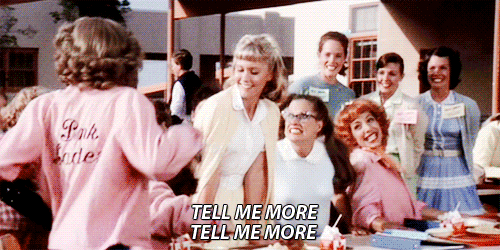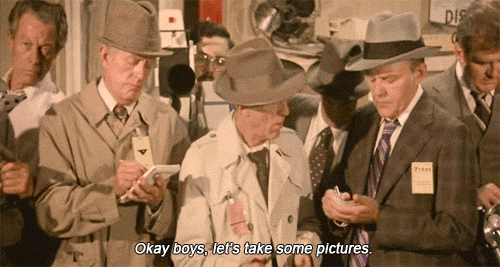Location scouting can be time consuming and tedious. What makes it worth the work is meeting a location owner who is excited to work with your production. A rare moment of peace for a producer is when it’s a smooth production day in the perfect space.
At Set Scouter, we see all kinds of production people do location scouting – from dedicated location scouts and managers, to producers, directors, coordinators, and production assistants. It’s one of those jobs that anyone can be assigned to, but few know how to do effectively.
Lots of other material out there covers the technical aspects of location scouting – check for power outlets, know where the sun is, is there access and parking. However, the relationship your production creates with the location owner is just as vitally important. And that relationship begins with the very first time you reach out to them. There are many seemingly small things we have seen producers do that work very well. Here are 10 things you check off your list as you do location scouting for your film, music video or any media production.
1) Off Set Scouter – cast a wide net. On Set Scouter – keep it focused.
If you are doing your location scouting on Facebook, Twitter and cold calling, you’ll need to contact many property owners to make sure you can scout a few places. If you are using Set Scouter to connect with homeowners, we recommend you keep it focused. The last thing you want is ongoing email communication with 10 people. Start by reaching out to two or three of your top choices. You will know right away if location owners are interested and can move on to the next person.
2) Compliment the location.

When first reaching out to the owner, make sure you treat it the same way you do when pitching your production to crew or funders. Location owners are also people who are partners in making your production happen. Yes, they do get paid for the rental, but you need them to be happy to work with you. Many location owners on Set Scouter are people who don’t need the money, but want to participate in the experience of film production. They list because they spent money and time decorating their space and want you to have a good use for it. So why not start by telling them their space is awesome!
3) Tell them about your production. This is not a relationship to be built on mystery.
What’s the content? They are curious to know. If you are using Set Scouter, these property owners have never met you before. This means that they are relying on your very first message to gauge how trustworthy and professional you are. Make sure you tell them what kind of production you are shooting. It’s a simple way to bring people’s guard down. Here’s an example of an awesome first message:
“Hi Erin, I’m shooting a small independent short film and I’m looking for a modern home to use as a location. Your space is beautiful and exactly what we are looking for. We are looking to shoot on the 25th and 26th of October. We are a small cast and crew of 10 people with one panel van and small equipment package. Because we are an independent production we have about $2000 – $2500 in the budget for location rental. I’d love to book a viewing to see the space in person, is your home available on our shoot date?”
4) Always be in communication. How fast you reply matters.

The worst thing you can do is drop the conversation midway. Even if you found a different space and know that you have no use for their location, let them know. If a location cancels on you last minute (which is not an unrealistic scenario in production), you may need to come back to the people you began scouting with. Just like the relationships on set, the relationships you build with the property owners can make or break your production.
5) Pick locations within your budget, but if you negotiate – Do It Early.
When scouting on Set Scouter, there is little reason to message locations out of your budget. Generally, you should be able to find one that works for you. If you do reach out to one out of your budget, it’s important to communicate your budget early. There are so many filmmakers that wait to negotiate until they’re right in front of the location owner. They think this is a good technique, because they can gauge the owners’ reactions and be more convincing. However, think about it this way: are you operating with a “time is money” mentality? There is a high chance, you will get to a face-to-face meeting and will get a “No” from the owner. The location owner may feel surprised and cheated. Many location owners are open to negotiation and know what their lowest price is. If you are over that personal threshold they have set in their mind, they are willing to say yes to your budget right away. If however, they know their minimum and if you are offering lower than that, you don’t want to spend the time convincing and beginning an already fickle relationship.
6) Find out exactly what rooms you can use.
The rule of thumb on Set Scouter is that if the picture of the room is up, you can use it. But when you are on your scout, make sure you let them know exactly what corners of the house you will be using. If they don’t want you to walk into a room, an easy thing to do is hang a sign on the door for the rest of the crew. This owner, for example doesn’t want the crew in the bedrooms, here’s what her listing looks like on Set Scouter.
7) Know where the crew and talent will eat.
This one is a biggie. No matter what size of crew you have, whether you’re an indie short film or a big budget commercial, every crew needs a good spot for lunch or dinner. This is fairly easy to arrange in a home, unless of course the kitchen and dining area are your sets. Make sure you think of the lunch space ahead of time and tell the homeowners about it as you scout the place.
8) Take lots of pictures right before the shoot.

Productions always promise to leave spaces as they found them, but what are the chances you can do that without any references? I know it’s the last thing you want to think about as you set up a production, but assign somebody on it and get to picture taking! You will appreciate this when the location owner claims a scratch on the wall and you can prove it was there all along.
9) Don’t be lazy – cover surfaces. Prepare the space for production.
Ok let’s get real. Your production will take a house and turn it upside down for a period of 12 -17 hours. And then, because you are a good production, you will put it right back to how you found it. However, the things that you can never fully monitor are scratches caused by your equipment (like dollies) and the marks on the carpet from the grip’s shoes. You don’t want to deal with this when it’s all over, so do yourself a favor and cover the surfaces. If you need help, you can always call Location Equipment Supply (for Toronto productions). They specialize in prepping the space.
10) Ready to Wrap: So close, but so far! Don’t skip the walk through and the dummy check.
I know this seems so simple, but we’ve seen even the most professional producers be happy to leave early and leave gaffer tape and garbage on the floor. You took the time to take photos at the beginning of the shoot, don’t skimp out now. Grab the location owner and do a thorough walk-through. You’d rather them notify you of a nick on a wall right then and there, than surprise you about it the next day. The worst-case scenario off Set Scouter: These people will never work with you again, and will make sure to tell others all about your irresponsible production crew (damn, another location burned). The worst case scenario on Set Scouter? You will need to pay a penalty fee. And no one likes losing money.
In general, being nice and respectful can go a long way! Look at these examples of happy emails we get when the producers took the time to do things right.
“We are blown away by how they treated our home. We loved the experience!”
“Everything went well. They were great and the whole experience was very easy!”
“They left the house beautifully and even with a pitcher of wild flowers. We hope to do more in the future because we thought it was a lot of fun.”
“Everything was run very professionally! Exciting evening.”
(and even after some damage…)
“We are very impressed with our first Set Scouter experience. The professionalism of the production team and the staff of Set Scouter made this a good experience and I am confident that this will be resolved.”

In conclusion:
As always, the team at Set Scouter is here to help in every way we can to make the location scouting process easy. Look to us for any advice you may need and together we can build an awesome community of happy production crews and ecstatic location owners.

